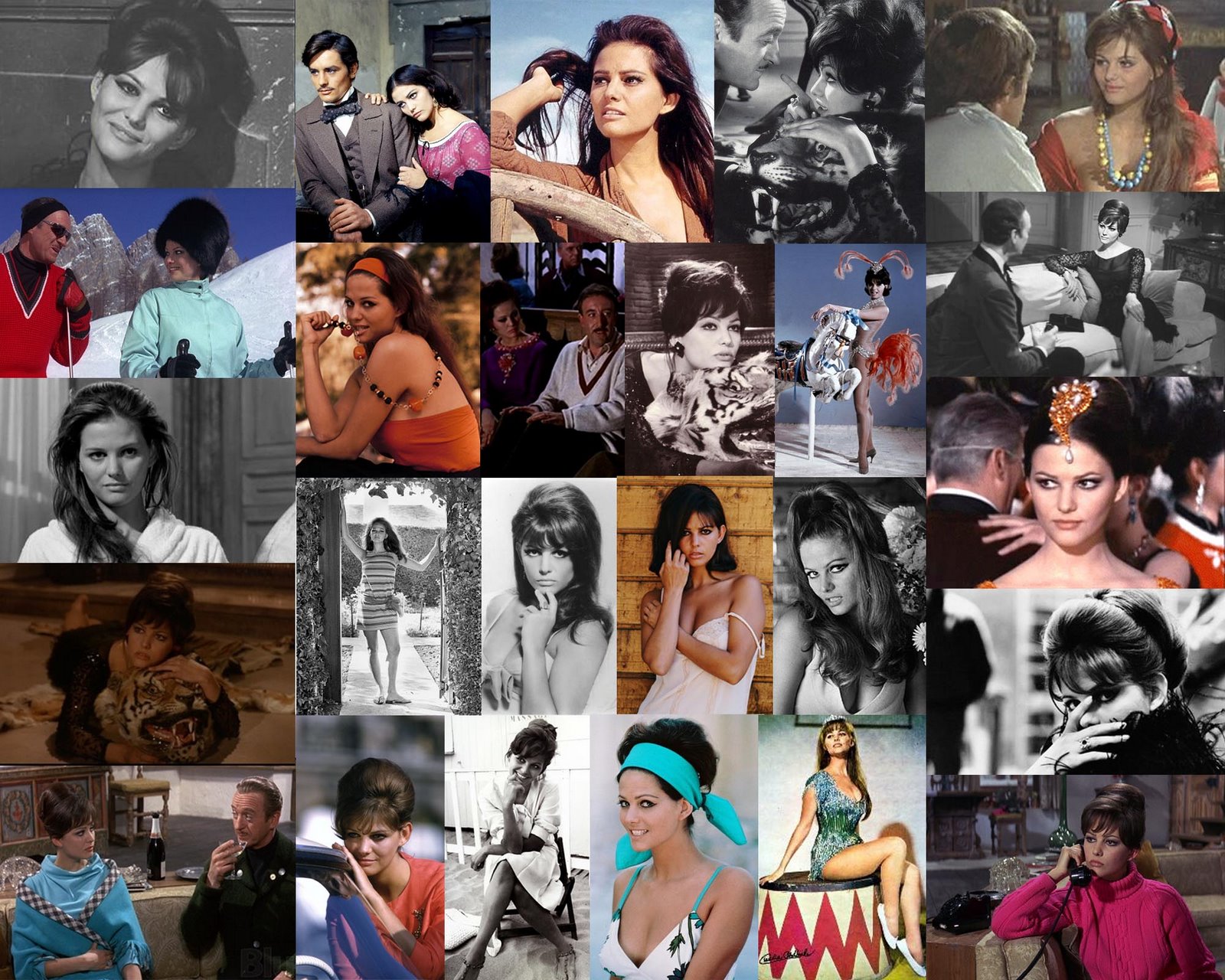 If you’re ever lucky enough to meet Claudia Cardinale, don’t dare call her a sex symbol. The Italian actress, born in Tunisia in April 15, 1939, has fought her entire career to not be labeled as a sex symbol and be taken seriously as an actress. She said “if you’re not English, you’re a foreigner – so you must be sexy. It’s an old British cliché.” Before her acting career began, Claudia’s plan was to be a teacher. In 1957, those plans came to an end when she won the title of “The Most Beautiful Italian Girl in Tunisia.” At first, Cardinale joked of the title, considering that she could barely speak Italian as her Sicilian parents raised her to speak French.
If you’re ever lucky enough to meet Claudia Cardinale, don’t dare call her a sex symbol. The Italian actress, born in Tunisia in April 15, 1939, has fought her entire career to not be labeled as a sex symbol and be taken seriously as an actress. She said “if you’re not English, you’re a foreigner – so you must be sexy. It’s an old British cliché.” Before her acting career began, Claudia’s plan was to be a teacher. In 1957, those plans came to an end when she won the title of “The Most Beautiful Italian Girl in Tunisia.” At first, Cardinale joked of the title, considering that she could barely speak Italian as her Sicilian parents raised her to speak French.From the contest, Cardinale won an trip to Venice, where her acting career began to take form. She was given a seven-year contract with Vides Films, one that stipulated that Cardinale wasn’t allowed to get married, gain weight, or cut her hair. Claudia made her film debut in “Goha” in 1958 and the film “Big Deal on Madonna Street” quickly followed. Her roles in Valerio Zurlini’s “Girl with a Suitcase” and Mauro Bolognini’s “Il’Bell Antonio,” both released in 1960, established her as a dramatic actress. The latter film paired Claudia with the actor Marcello Mastroianni the first of many times.
In 1963 Cardinale achieved professional and international success. She earned a lead role alongside stars Alain Delon and Burt Lancaster in the film “The Leopard,” directed Luchino Visconti. Claudia also played Maria in “La Ragazza di Bube,” for which she won the Nastro d’Argento Award for Best Actress. That same year, she also worked with Federico Fellini in “8-1/2,” a film that many consider one of the finest in film history. In the film, Cardinale played the embodiment of feminine perfection, the ideal woman. “8-1/2” was the first time an audience heard Cardinale’s true voice. All her prior Italian films had been dubbed because up until that point she wasn’t yet fluent in Italian and still possessed a strong French accent that would have sounded odd speaking Italian. But Fellini loved Cardinale’s accent, thinking it ‘strange’ and adding to the actress’s mystery.
Despite her role in Fellini’s film catapulting her to international celebrity, Cardinale found herself portrayed as more of a sex symbol than a serious actress. Brigitte Bardot famous said of Cardinale, “I already know who’s destined to take my place. There can be only one and one alone. After BB comes CC, no?” But Claudia was determined to shake that perception. She was adept in choosing roles that would display more than her gorgeous looks and would actually test her as an actor. Of her career, “I never felt scandal and confession were necessary to be an actress. I’ve never revealed my self or even my body in films. Mystery is very important.”
Cardinale made the transition during this time to Hollywood films, her first role as Princess Dala in “The Pink Panther,” released in 1964, cast her alongside Peter Sellers, Capucine, and David Niven. Of his costar, Niven said, “If you ask me, Claudia Cardinale is, after spaghetti, Italy’s happiest invention.” Her next Hollywood role, in “Circus World,” featured her voice undubbed and speaking English. The next year, she made “Blindfold” with Rock Hudson and the year after was in the western “The Professionals,” with Burt Lancaster, Jack Palance, and Lee Marvin. This film is considered to be the finest of the dozen or so films he made outside of Europe. After that, she made the beach comedy “Don’t Make Waves” with Tony Curtis and Sharon Tate. Cardinale’s Hollywood career was relatively short, as she didn’t enjoy the “star system” that she found present in making films in the US. She principally lived in Europe, making films “Sandra of a Thousand Delights,” with Visconti, and “Once Upon a Time in the West” with Sergio Leone and featured Henry Fonda, Charles Bronson and was Cardinale’s second western film, despite being an Italian production.
From 1966 to 1975, she was married to Italian film producer Franco Cristaldi, and she now lives with Italian director Pasquale Squitieri since 1975 and has two children. Now 71, she lives in Paris and is a humanitarian, concentrating her efforts on pro-gay and pro-women issues, and an author, having written three books about her career and her heritage.